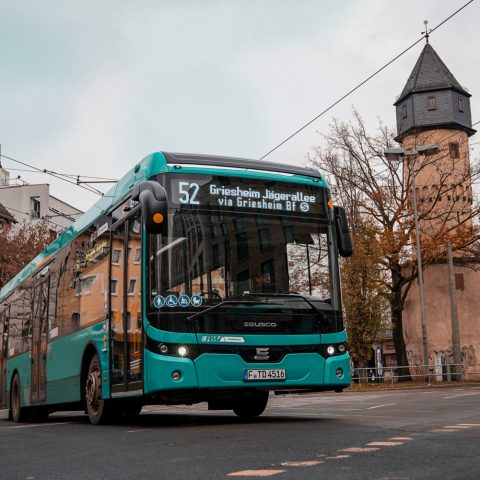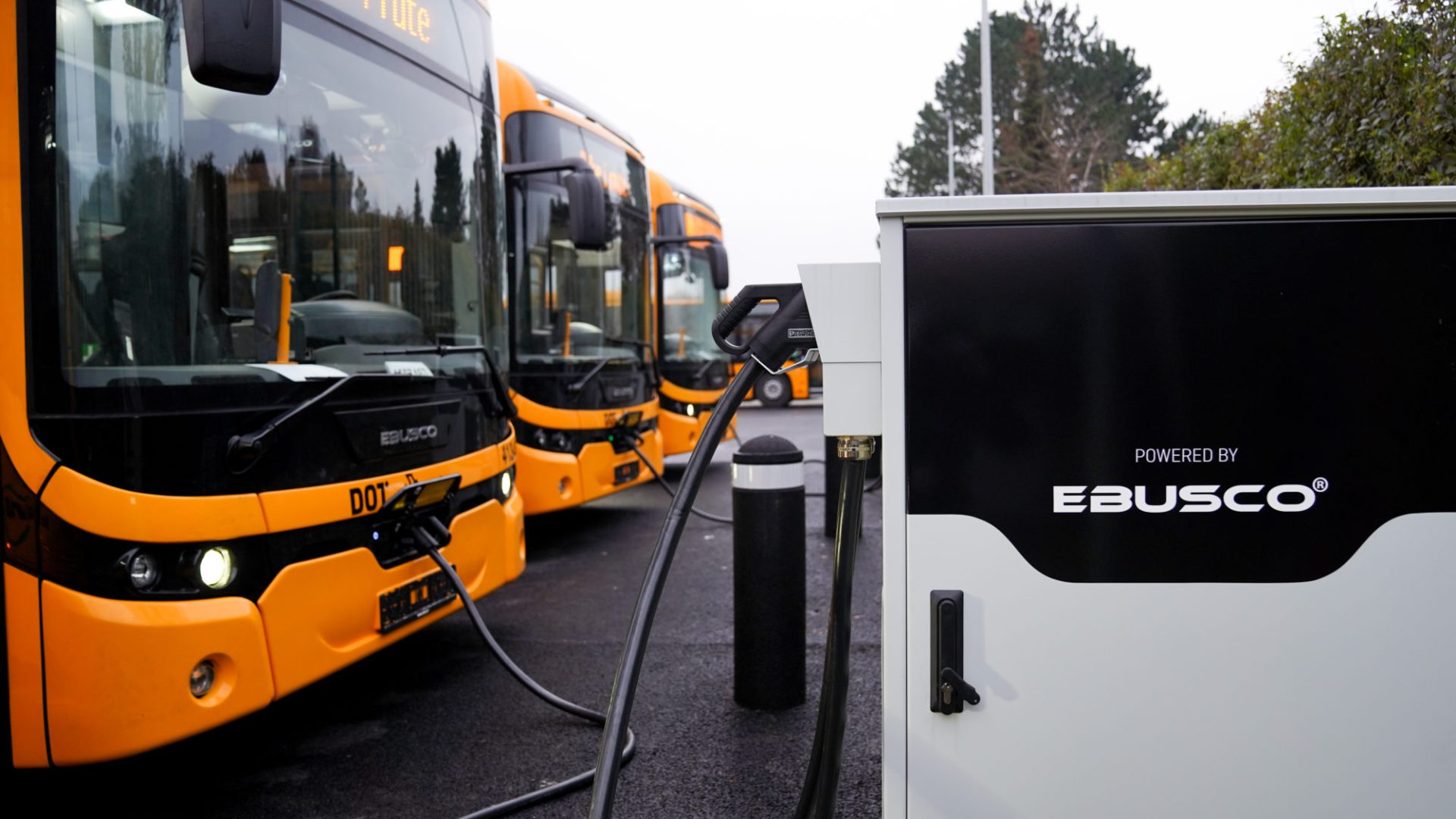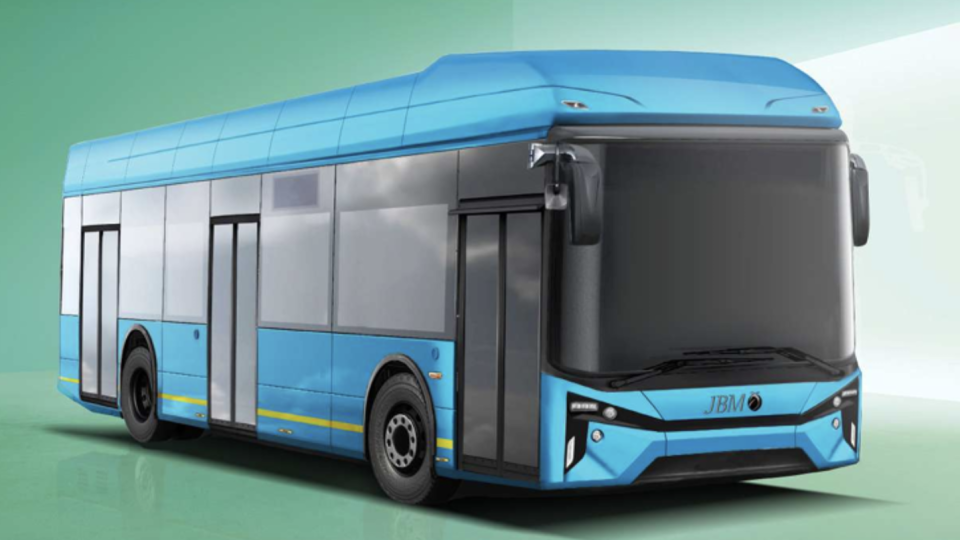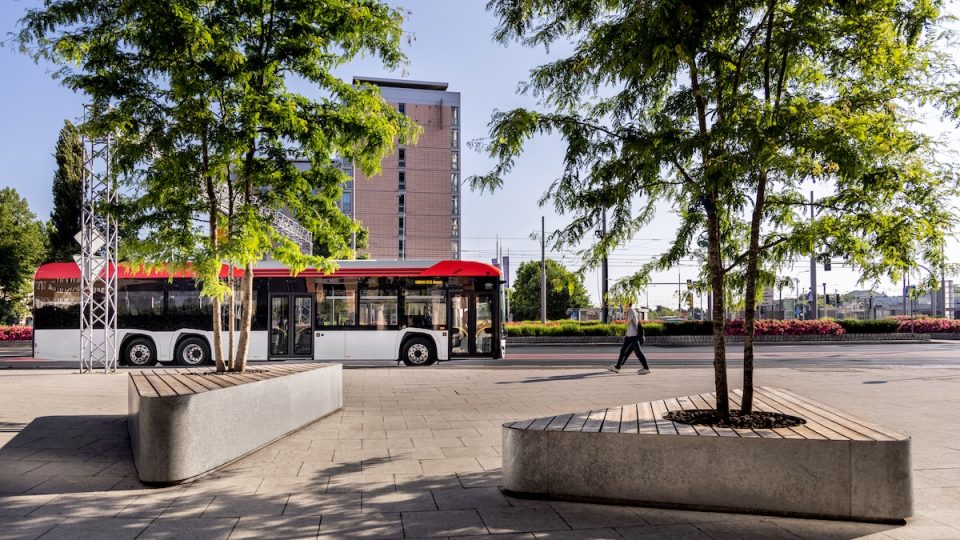25 Ebusco 2.2 e-buses on delivery in Frankfurt and Copenhagen
Ebusco is supplying multiple buses to Transdev in Frankfurt as well as to Nobina in Copenhagen. A total of 25 e-buses model 2.2 is currently on delivery. Recently the King of the Netherlands yesterday officially opened Ebusco new factory hall in Deurne by putting the Ebusco 3.0 bus on the charger (its debut in operation was scheduled in early 2022, but the manufacturer […]

Ebusco is supplying multiple buses to Transdev in Frankfurt as well as to Nobina in Copenhagen. A total of 25 e-buses model 2.2 is currently on delivery.
Recently the King of the Netherlands yesterday officially opened Ebusco new factory hall in Deurne by putting the Ebusco 3.0 bus on the charger (its debut in operation was scheduled in early 2022, but the manufacturer delivered last week first units in Munich). The factory in Deurne is expected to have a production capacity of five hundred emission-free buses per year by 2022, Ebusco says. The company just went public listing at Euronext Amsterdam.
Nobina is due to receive the first of four orders. Ebusco has been active in the Danish market since March 2021 when the first order was signed with Nobina for 13 Ebusco 2.2 low-floor 12-metre buses. In the coming year, Ebusco will work on the next three orders, making a total of 79 zero-emission buses. With these orders, Nobina is playing a major part in Denmark’s ambitious plans to cut 7.2 million tonnes of CO2 by 2030, Ebusco says.
Ebusco, chargers also for Nobina
In addition, Nobina has ordered a number of Ebusco 150 kW chargers. One plug can charge 150 kW or two plugs can charge 75 kW. This gives Nobina the freedom to adjust charging times to ensure ultimate route planning and, at the same time, best manage the life of the battery pack. Therefore, Ebusco is providing emission-free buses as well as supporting Nobina in setting up its EV infrastructure in Denmark.

Ebusco has been a proud partner of Germany’s largest private mobility provider, Transdev, for some time, the Dutch bus builder points out. Last year, Ebusco delivered its first batch to Frankfurt. As of the end of 2021, these buses have driven close to 1 million kilometres, with a corresponding reduction in CO2 emissions. Like the first batch, the second batch is for 12 Ebusco 2.2 low-floor 12-metre buses. The buses will help Frankfurt achieve its goal of having 100% emission-free buses by 2030.
Transdev chose Ebusco «because of its long range of buses that do not need to be charged in between. This reduces overall operating costs due to the charging infrastructure and the reduction in the number of times buses need to be charged» still Ebusco states.







